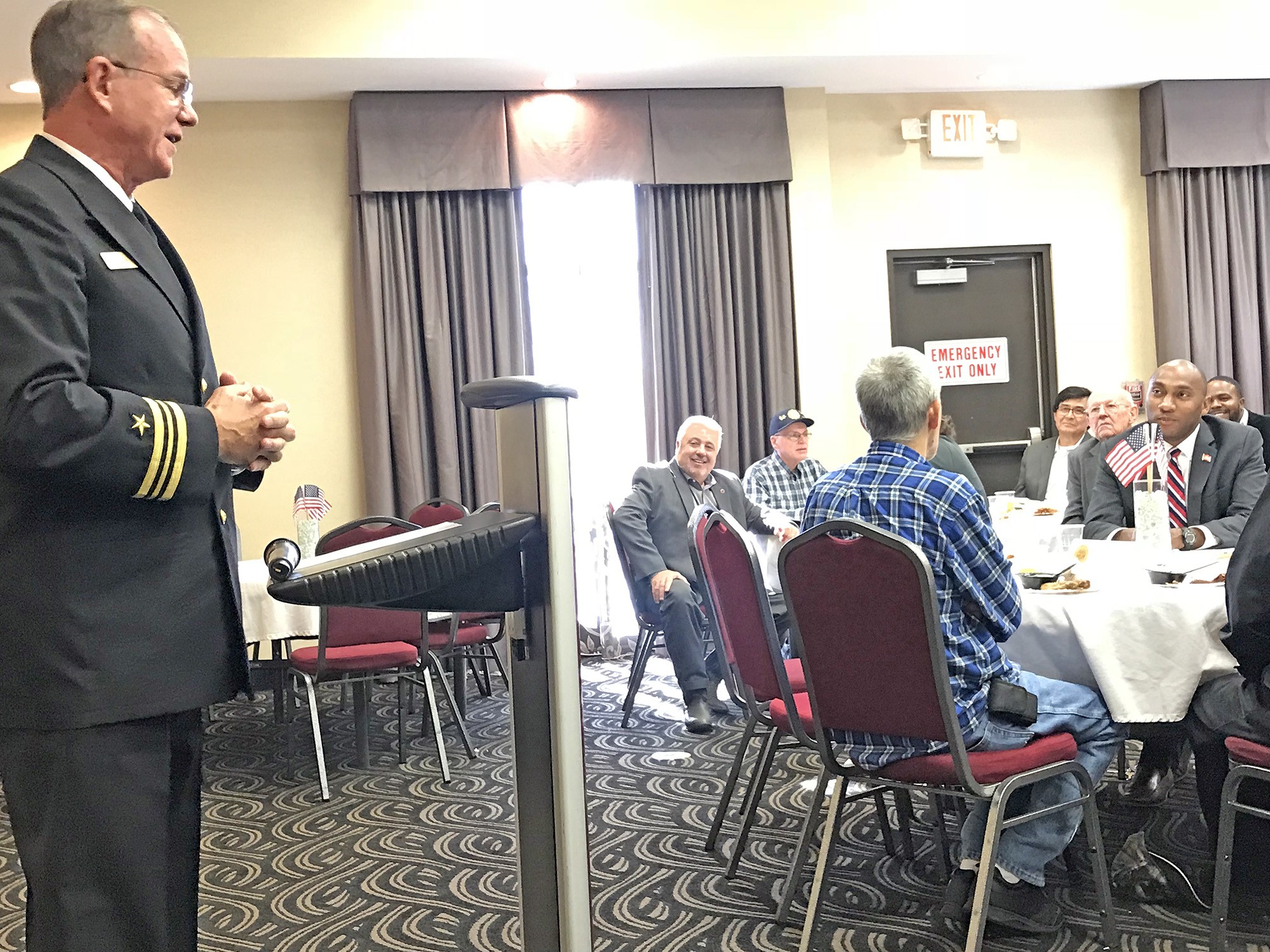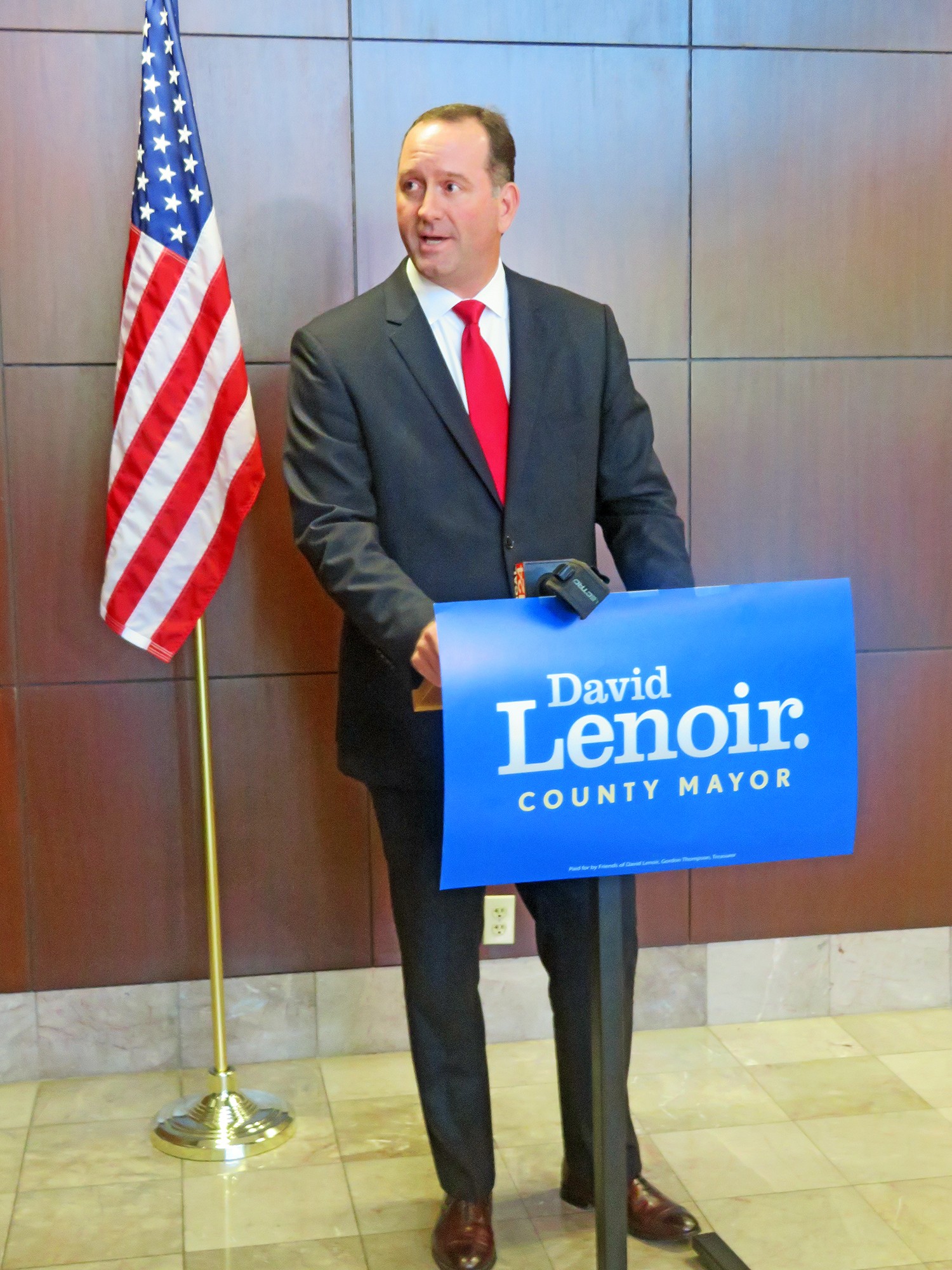Anybody who’s been raised since the advent of television (which is everybody now alive) knows the importance of TV ads in political races. The advertising phase of several campaigns is just now coming into prominence. In the case of Shelby County political races, there are but two months to go before the May 1st election day in the Republican and Democratic primaries. Statewide races, which culminate in August, have a bit more lead time.
Two new ads that are just now getting to be seen by the public indicate wholly different strategies. One is on behalf of Shelby County Trustee and GOP county mayor candidate David Lenoir. The other is for gubernatorial candidate Randy Boyd of Knoxville, the former state Commissioner of Economic Development.
Though Lenoir is well known in local government circles, he is not exactly a household name. Accordingly, his new 30-second TV spot attempts to fill a name-ID gap between himself and primary opponent Shelby County Commissioner Terry Roland, a firebrand who is adept at gathering free media coverage for himself.
Lenoir’s spot begins with an image of a football helmet, which fades into a shot of the candidate as a young man, wearing the crimson uniform of the University of Alabama, and clearly game-ready. A voice-over then explains, “When an injury ended his dreams to play in the NFL, David Lenoir refused to stand on the sidelines.”
In fact, Lenoir, whose athletic career ended prematurely due to injury, was once a highly touted defensive end for the fearsome Crimson Tide. The duration of the ad shows images of Lenoir at work and on the campaign stump, looking both accessible and able, while the voice-over speaks of his “reduc[ing] county debt and saving taxpayers millions.” The ad promises that Lanier will “fight to protect our neighborhoods and strengthen our schools” and contends that Shelby Countians “need a mayor with drive and determination.”
Lenoir has ample funding and will be able to play that ad, and subsequent ones, abundantly in the face of Roland’s newsmaking skills and hot-button pushing, and his other GOP opponent, Joy Touliatos, whose pleasant countenance is displayed on several well-placed billboards on county roadways. No doubt each of them has a TV campaign in mind as well.
Meanwhile, Boyd, a pleasant, mild-mannered man who was a highly successful businessman (Invisible Fences) before his service in state government, where he was known as a moderate, is up against a primary opponent in U.S. Rep. Diane Black who is as well-funded as he is and has a strong hold on her party’s ultra-right constituency.
So Boyd, who has run a couple of TV ads already, stressing his business success, his grit as a distance runner, and his ambitions on behalf of economic development and education, has belatedly decided to contest Black (one of whose ads boasts her readiness to “stand up to the weak-kneed people in my own party”) on her own ground.
Accordingly, while the images in Boyd’s new ad are similar to those in his previous ones, a voice-over intones that the candidate “believes that the right to life comes from God, not the government,” and that people “who can work should work and not permanently live on welfare,” while a subscript on the screen blasts the notion of sanctuary cities. The ad concludes, “What really matters is faith, families, and a good-paying job. A conservative businessman, not a politician.”
Asked about the ad over the weekend in Memphis, where he attended the GOP’s Lincoln Day banquet, Boyd said, “If I’m asking Republicans for their votes, I need to assure them that I share their values.”
The ad, an effort to co-opt an opponent’s issues, is clearly a gamble, and it remains to be seen whether it serves the candidate’s purposes or, alternatively, could backfire with GOP voters looking for a moderate candidate.
 JB
JB 
 JB
JB 

 JB
JB